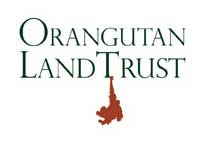What is RSPO? This stands for the Roundtable on Sustainable Palm Oil. It was formed in 2004 in reaction to the urgent and increasing global demand for sustainably produced palm oil. It's primary aim is to promote the grwoth and use of sustainable palm oil products through both credible global standards and the engagement of stakeholders.
RSP is a non-profit association and its stakeholders come from 7 different sectors of the palm oil industry:
Palm oil producers
Palm oil processors / traders
Consumer goods manufactureres
Banks / investors
Retailers
Environmenttal or nature conservation NGOs
Social / developmental NGOs
The idea is they work together to develop and implement these globabl standards for producing sustainable palm oil.
Currently its members include high profile, multinationals such as Unilever, Johnson & Johnson, Nestlé, Colgate,Palmolive, The Body Shop, Cadbury, Tesco, ASDA and Waitrose.
It seems that the RSPO and its members are full of ideas and aspirations, but when major players such as Unilever only promise to use certified palm oil by 2015, it seems a weak promise. 2015 is 6 years away. Estimates predict the orangutan will be exinct in the wild in 10 years. These promises are too little too late.
As membership to the RSPO is completely voluntary no-one seems to be in a position to force these companies to act - and to act now. It's all very good PR, but not much action seems to be taking place. In addition to this, recent reports say that even 'certified palm-oil' is not necessarily sustainable at all. RSPP auditors can certify a planation as sustainable and hand out certificates equal to the number of tonnes of palm oil produced there. The plantation owners are then able to sell these certifiates on - to anyone. Those buying these certificates can then claim their palm oil is sustainable without it even being checked.
Surely this can't be right. This means that we, the consumers, are being lied to - not just misled but deliberately lied to and this cannot continue.
We can make a difference. We have to make each and every one of these companies take responsibility for their own products. We deserve to know what goes into our goods and we have the right to choose. If enough of us stand together we can hold them accountable for the awful scenes currently being witnessed in Indonesia.
For me the name 'Roundtable' conjours up images of King Arthur and his Knights. They were a noble group of men who kept their word, who knew the meaning of honour. If this group of multinational companies chooses to go by the same name, then their sense of honour and commitment should be no less. I promise to do all I can to help the orangutan and the forests of Indonesia, to get the companies to at least label their products properly in the short term and only use sustainable palm oil as soon as possible. These companies have made their own promises - we have to make sure they keep them!
Do what you can.















